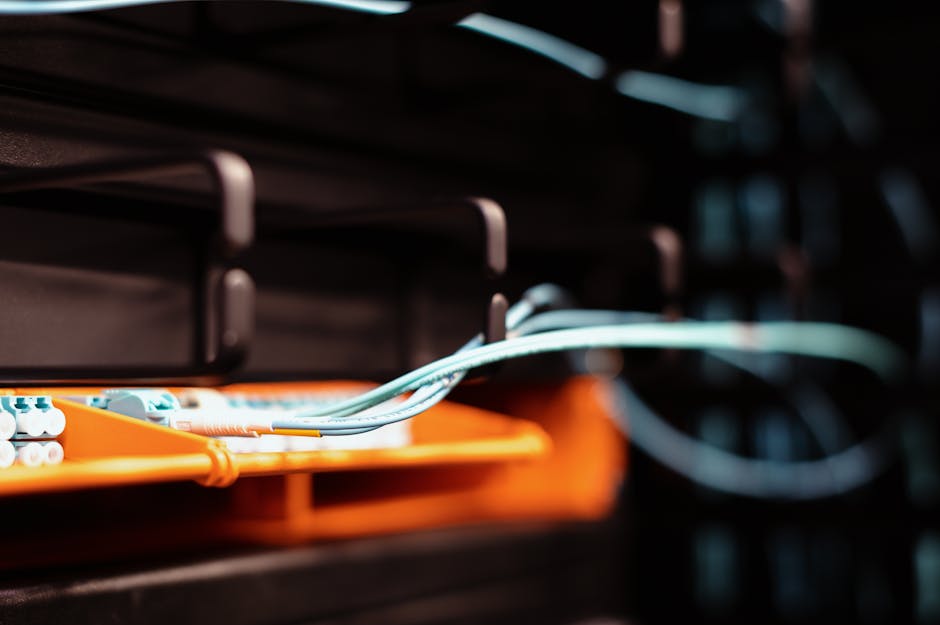Leveraging Iot Services For Energy Efficiency In Liverpool’s Industrial Sector
Are you looking for ways to optimise energy consumption and reduce costs in Liverpool’s industrial sector? Look no further. Leveraging IoT services can revolutionise the way energy is managed and utilised, leading to increased efficiency and sustainability.
Imagine having real-time insights into your energy consumption, allowing you to pinpoint inefficiencies and make data-driven decisions. With IoT technology, this becomes a reality. By monitoring and analysing energy usage in real-time, you can identify areas where improvements can be made, whether it’s optimising machinery operations or adjusting temperature settings.
But it doesn’t stop there. Implementing smart energy management systems enables you to automate processes, ensuring that resources are used efficiently without human intervention. This not only leads to cost savings but also reduces environmental impact.
By leveraging IoT services for energy efficiency, Liverpool’s industrial sector has the opportunity to create a sustainable future while saving money. It’s time to embrace this technological solution and pave the way towards a greener and more prosperous industry.
Key Takeaways
- Looking for a Liverpool Iot Services company?
- Real-time monitoring and analysis of energy consumption allows for pinpointing inefficiencies and making data-driven decisions.
- Implementing smart energy management systems automates processes and reduces environmental impact.
- Predictive maintenance detects potential issues before major breakdowns or failures occur.
- Integrating renewable energy sources reduces reliance on traditional power grids and minimises greenhouse gas emissions.
The Benefits of IoT Technology in the Industrial Sector

You’ll be amazed at the benefits IoT technology brings to the industrial sector, enhancing efficiency and revolutionising operations like never before.
Smart manufacturing is one such benefit that IoT offers. By integrating devices and systems with internet connectivity, factories can streamline their production processes, resulting in higher productivity and reduced costs. IoT enables machines to communicate with each other, allowing for real-time data analysis and decision-making. With smart manufacturing, businesses can optimise their supply chain management by tracking inventory levels, monitoring equipment performance, and automatically replenishing stock when needed.
Another advantage of IoT in the industrial sector is predictive maintenance. Traditional maintenance practises are often reactive and time-consuming, causing downtime and increasing repair costs. However, with IoT-enabled sensors installed on machinery, companies can monitor its condition continuously. These sensors collect data on factors like temperature, vibration levels, and energy consumption. By analysing this data using advanced algorithms and machine learning techniques, potential issues can be detected before they cause major breakdowns or failures. Predictive maintenance not only reduces unplanned downtime but also extends the lifespan of equipment while minimising repair expenses.
Real-time monitoring and analysis of energy consumption is another area where IoT technology excels in improving efficiency in the industrial sector. By connecting energy metres to an IoT platform, companies gain access to valuable insights on their energy usage patterns. This information allows them to identify areas where energy waste occurs and implement strategies for optimisation. For example, by analysing real-time data on electricity consumption during peak hours or identifying inefficient equipment consuming excessive power during idle periods, businesses can take proactive measures to reduce overall energy usage.
With these advancements facilitated by IoT technology – smart manufacturing and predictive maintenance – as well as real-time monitoring of energy consumption – Liverpool’s industrial sector has a tremendous opportunity to enhance its operational efficiency while reducing costs without compromising productivity or sustainability goals.
Real-Time Monitoring and Analysis of Energy Consumption

By implementing real-time monitoring and analysis, you can gain valuable insights into your company’s energy consumption patterns, helping you identify areas for improvement and potentially reducing energy costs by up to 20%.
- With energy consumption tracking through IoT technology, you can collect data on how much energy your industrial processes are consuming in real-time. This allows you to have a clear understanding of your energy usage throughout the day, week, or month.
- By analysing this data, you can identify specific areas where excessive energy consumption occurs. For example, you may discover that certain machines or equipment are using more energy than necessary due to inefficiencies or malfunctions.
- Armed with this information, you can take proactive steps towards optimising your energy consumption. This could involve adjusting schedules to run equipment during off-peak hours when electricity rates are lower or implementing energy-efficient technologies to replace outdated ones.
- Real-time monitoring and analysis also enable you to set benchmarks for comparison. By comparing current performance against historical data or industry standards, you can easily spot anomalies and address them promptly.
With the power of IoT technology at your fingertips, tracking and optimising energy consumption becomes an achievable goal. The ability to monitor your industrial processes in real-time provides invaluable visibility into how efficiently your operations are running.
In the next section about identifying and addressing energy inefficiencies, we will explore further strategies to improve overall energy efficiency within Liverpool’s industrial sector.
Identifying and Addressing Energy Inefficiencies

One effective strategy for improving energy consumption is to identify and address inefficiencies within the industrial processes. Conducting an energy audit is a crucial step in this process, as it allows businesses to assess their current energy usage patterns and identify areas of improvement.
By analysing data collected from IoT devices such as smart metres, sensors, and monitoring systems, businesses can gain valuable insights into their energy consumption patterns and pinpoint areas where energy is being wasted or inefficiently used.
During the energy audit, various factors are taken into consideration. This includes analysing historical data on energy consumption, examining equipment efficiency levels, evaluating heating and cooling systems, and assessing lighting usage. By conducting a comprehensive assessment of these factors, businesses can gain a deeper understanding of how their operations contribute to overall energy inefficiency.
Once the areas of inefficiency have been identified through the energy audit, businesses can then take steps towards implementing energy optimisation strategies. This may involve upgrading equipment with more efficient models or implementing automated control systems that optimise resource usage based on real-time demand. Additionally, businesses can consider integrating renewable energy sources into their operations to reduce reliance on traditional power grids.
By addressing these inefficiencies and optimising energy usage throughout industrial processes, businesses in Liverpool’s industrial sector can significantly improve their overall energy efficiency. The implementation of smart management systems plays a vital role in achieving this goal by providing real-time monitoring capabilities and automating decision-making processes based on collected data.
Transition: Moving forward into the subsequent section about ‘implementing smart energy management systems,’ let’s explore how these technologies can further enhance the efficiency of Liverpool’s industrial sector.
Implementing Smart Energy Management Systems

To make your operations even more efficient, consider implementing smart energy management systems in your business processes. These systems can help you optimise energy usage and reduce costs by providing real-time data and predictive maintenance capabilities.
Here are three reasons why you should consider incorporating smart energy management systems into your industrial sector:
- Energy Optimisation: Smart energy management systems use advanced sensors and analytics to monitor and analyse energy consumption throughout your facility. By identifying areas of inefficiency, such as equipment that’s running at suboptimal levels or excessive energy usage during non-productive periods, these systems can help you make data-driven decisions to optimise energy usage and reduce waste.
- Predictive Maintenance: One of the key features of smart energy management systems is their ability to provide predictive maintenance alerts. By continuously monitoring equipment performance, these systems can detect potential issues before they lead to costly breakdowns or downtime. This proactive approach allows you to schedule maintenance activities when it’s most convenient and minimise disruptions to your operations.
- Cost Savings: Implementing smart energy management systems can lead to significant cost savings in the long run. By optimising energy usage and reducing maintenance costs through proactive measures, you can lower your overall operational expenses. Additionally, by leveraging real-time data on energy consumption patterns, you may also be eligible for incentives or rebates from utility providers based on your improved efficiency.
By implementing smart energy management systems in your business processes, you can improve efficiency, reduce costs, and enhance sustainability efforts within Liverpool’s industrial sector.
Next up, let’s explore how these solutions contribute to cost savings and return on investment…
Cost Savings and Return on Investment

Explore how implementing smart energy management systems in your operations can lead to significant cost savings and a high return on investment. In today’s competitive industrial sector, finding ways to reduce costs while improving efficiency is crucial.
Smart energy management systems offer a solution that not only helps you achieve these goals but also contributes to creating a sustainable future for Liverpool’s industries.
One of the key benefits of implementing smart energy management systems is the potential for substantial cost savings. These systems allow you to monitor and analyse your energy consumption in real-time, providing insights into areas where improvements can be made. By identifying inefficiencies and implementing targeted strategies, you can optimise your energy usage and reduce wastage. This leads to lower utility bills and operational costs, resulting in significant savings over time.
Energy efficiency case studies have shown that companies who have implemented smart energy management systems have achieved impressive results. For example, by utilising advanced data analytics capabilities, businesses have identified opportunities for equipment optimisation, leading to reduced maintenance costs and increased equipment lifespan. Furthermore, automated controls and predictive maintenance algorithms have helped minimise downtime and improve overall productivity.
To achieve industry best practises, it is important to continuously monitor and analyse your energy consumption patterns. This allows you to identify trends and make informed decisions regarding system upgrades or process modifications that can further enhance efficiency. By investing in smart energy management systems now, you’re setting yourself up for long-term success by reducing operational costs and maximising your return on investment.
By leveraging these technologies, Liverpool’s industrial sector can create a sustainable future by reducing its carbon footprint while remaining economically competitive.
The next section will explore how integrating renewable energy sources into operations can contribute towards this goal without compromising profitability.
Creating a Sustainable Future for Liverpool’s Industries

Let’s now dive into how Liverpool’s industries can create a sustainable future by integrating renewable energy sources into their operations. By adopting sustainable practises and leveraging renewable energy sources, Liverpool’s industries can significantly reduce their carbon footprint and contribute to the overall goal of achieving a greener and more environmentally friendly city.
One of the key ways for industries to embrace sustainability is by harnessing renewable energy sources such as solar power, wind power, and biomass. These sources provide clean and abundant energy that can be utilised to power various industrial processes. Integrating these renewable energy sources into operations not only reduces reliance on fossil fuels but also helps in minimising greenhouse gas emissions.
To better understand the benefits of incorporating renewable energy sources, let’s take a look at the following table:
| Renewable Energy Source | Benefits |
|---|---|
| Solar Power | – Reduces electricity costs – Low maintenance requirements – Long lifespan |
| Wind Power | – Provides consistent power supply – Can be installed in remote locations – Generates jobs in manufacturing and instilment |
| Biomass | – Utilises organic waste materials – Reduces landfill waste – Provides an alternative fuel source |
By implementing these sustainable practises, Liverpool’s industries can not only reduce their environmental impact but also achieve long-term cost savings. While there may be upfront costs associated with installing renewable energy systems, the return on investment is significant over time due to reduced operating expenses.
Embracing renewable energy sources and adopting sustainable practises are crucial steps towards creating a sustainable future for Liverpool’s industries. By integrating these solutions into their operations, industries can contribute to a greener city while enjoying the benefits of reduced costs and increased efficiency.
Contact us to discuss our services now!
